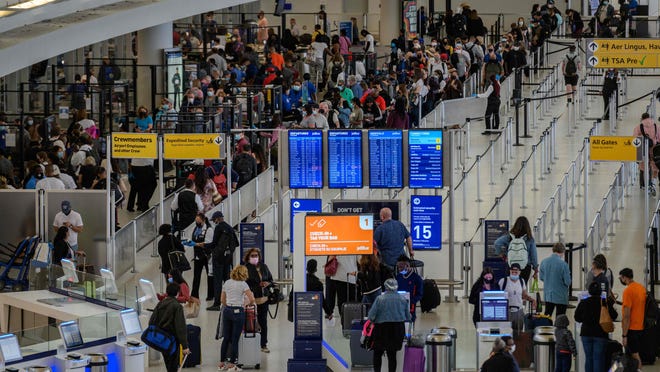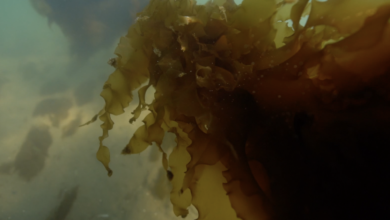
AUSTIN, Texas – The final version of the sweeping GOP elections bill, negotiated in private by two Republican leaders from the Texas House and Senate, was unveiled Saturday, setting up an intensely partisan showdown over a measure that now includes a longer list of new rules and restrictions.
With GOP majorities in both houses of the Legislature, however, there is little doubt about the ultimate fate of floor votes on Senate Bill 7, a measure Republicans insisted is needed to bolster flagging faith in the election system but Democrats blasted as a transparent attempt to make it harder to vote, particularly for those who support their party.
Opponents are already preparing to challenge many of the bill's provisions in court.
"SB 7 is a ruthless piece of legislation," said Sarah Labowitz with the ACLU of Texas, one of the groups vowing to sue if the bill becomes law. "It targets voters of color and voters with disabilities in a state that’s already the most difficult place to vote in the country."
House and Senate Republicans took different paths on the bill they call the Election Integrity Protection Act of 2021, sending SB 7 to a conference committee led by Sen. Bryan Hughesand Rep. Briscoe Cain.
Hughes and Cain negotiated a final version of SB 7 that includes provisions that were not in either house's version of the bill, broadening its scope to a wide array of election-related matters, including tighter regulations on mail-in and early voting.
"There is nothing more fundamental to this democracy and our state than the integrity of our elections," they said in a joint statement.
"Even as the national media minimizes the importance of election integrity, the Texas Legislature has not bent to the headlines or corporate virtue signaling," Hughes and Cain added, referring to corporations and business groups that opposed SB 7 and similar GOP-led efforts as imprudent restrictions on access to the polls.
The two Republicans also created a stir by announcing Friday night that they had agreed upon a final version of the bill, surprising three Democrats on the conference committee — one senator and two House members — who complained that they had not seen the final version or taken part in negotiations.
"This is egregious!" Rep. Terry Canales, a Democrat, said Friday night on Twitter.
'The truth is hard':Senate Republicans block commission to study Capitol riot of Jan. 6
The final version of SB 7 must be approved — without the opportunity for changes — by simple majorities in both the House and Senate.
The bill, which grew from 23 pages to 67 pages in the conference committee, includes:
- A ban on drive-thru voting or polling places inside tents or other temporary structures, with no voting allowed from inside a vehicle except by those with a disability who qualify for curbside voting.
- No 24-hour voting or extended hours for in-person voting, which could begin no earlier than 6 a.m. and end no later than 9 p.m.
- Polling places could not open before 1 p.m. on the last Sunday of early voting, a traditional day of "Souls to the Polls" events that are popular in Black churches.
- Those who vote by mail would have to begin including their driver's license number, state ID number or last four digits of their Social Security number on the inner envelope. Ballots must be rejected if the numbers aren't included or do not match what the voter listed on the vote-by-mail application.
- Those who help somebody cast an in-person ballot because of a physical limitation or language barrier would have to fill out a form listing their name, address, relationship to the voter and whether they accepted money or another benefit from "a candidate, campaign, or political committee."
- Those who drive three or more people to the polls would have to provide their name and address on a form provided by an election worker and indicate whether they are also providing help to a voter based on a disability. Drivers related to all passengers would be exempt.
- The forms would be collected by the secretary of state's office, which would have to provide them upon request to the state attorney general. It bans sending applications to unregistered voters that already have their name and address filled out, which has been proven to increase the number of people who get registered to vote in time.
- Vote-by-mail applications could be sent only to voters who request one, and a government official who violates the restriction could be charged with a state jail felony and receive up to two years in jail.
- Voter registration applications could not be sent with a name and address already filled in, a popular strategy to increase responses during voter drives.
The bill also would create several new crimes and beef up penalties for existing offenses.
The new crime of vote harvesting, defined as receiving compensation for interacting with voters with the intent to deliver votes for a specific candidate or ballot measure, would be a third-degree felony punishable by two to 10 years in prison.
In addition, elections officials who count invalid votes, or reject valid ballots, could be prosecuted for a state jail felony. The House-passed version of the bill had a lower penalty.
The final version of SB 7 also stripped out several House amendments that would have let voters fix signature problems on mail-in ballots and better track ballots after they were mailed.
Democratic Rep. Jessica González said the handling of SB 7 showed Republicans "do not care about the values of our democracy."
"Republicans are trying to pass SB 7 with new language that was not discussed and the public was not allowed to testify on," she said on Twitter.
The bill also beefed up protections allowing poll watchers, who typically represent a political party or candidate, to observe conduct in polling places, vote-counting centers and inside vehicles used for curbside voting by those with a disability.
Watchers must be given free movement to observe events and must be allowed to sit or stand close enough to see and hear what's going on, the bill says, adding that election workers who reject a poll watcher risk up to 180 days in jail under a Class B misdemeanor.
To counter complaints that SB 7 would embolden poll watchers to intimidate voters, the bill requires watchers to take the an oath: "I swear (or affirm) that I will not disrupt the voting process or harass voters in the discharge of my duties."
President Joe Biden, in a statement distributed by the Texas Democratic Party, called the newly unveiled SB 7 "wrong and un-American."
"Texas legislators put forth a bill that joins Georgia and Florida in advancing a state law that attacks the sacred right to vote. It’s part of an assault on democracy that we’ve seen far too often this year — and often disproportionately targeting Black and Brown Americans." Biden said.
"In the 21st century, we should be making it easier, not harder, for every eligible voter to vote," he added.
But Ken Cuccinelli, former Virginia attorney general and national chairman of the Election Transparency Initiative, praised SB 7.
"After months of hard work, we’re grateful that the Texas House and Senate have come together in a truly historic effort to deliver more fair, secure and transparent elections all Texans can trust," he said.
Source link





